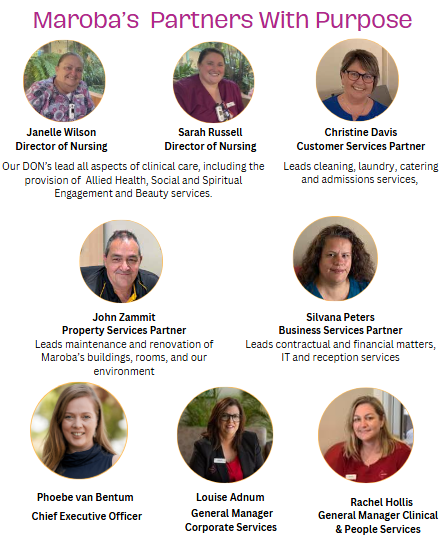Aged Care Standards
From 1 November 2025, the new Aged Care Act 2024 came into effect. The Act replaces the existing 1997 Aged Care Legislation and addresses the needs and responsibilities of older people, aged care workers, and the broader sector.
It puts the rights of older people at the centre of the aged care system and introduces significant updates across the aged care sector. These changes are based on feedback from older Australians and aim to create a fairer, safer and more respectful aged care system.
The new Act includes a Statement of Rights, which has replaced the current Charter of Aged Care Rights. It sets out older people’s rights to make informed and supported decisions about their own life, needs and preferences. The Statement of Rights clarifies older people’s culture, identity and connection to community must be respected by aged care providers.
The Act streamlines and clarifies the obligations of aged care providers and workers ensuring there are systems in place for complaints management and information disclosure. Aged Care providers must demonstrate a commitment and capability to continuous improvement. The act provides greater protection for whistle blowers.
Key changes in the new Aged Care Act
- A new Statement of Rights for all aged care recipients.
- A stronger preference on individual needs, preferences and cultural identity.
- A national Support at Home program for people receiving care in the community.
- A Single Assessment System to access aged care services more easily.
- Increased transparency in aged care funding and operations.
- Clearer complaints management process
- Introduction of whistleblower protections
- Stronger government oversight and regulation of aged care providers.
What is the Statement of Rights?
The Statement of Rights is a legal document ensuring an older persons’ independence, cultural identity, privacy is respected. Older people have the protected right to raise concerns without fear of consequences.
Key rights protected under the Statement of Rights:
Independence, autonomy, empowerment and freedom of choice – the right to make personal decisions and have control.
Equitable access – the right to a fair and accurate assessment to find out what funded aged care services are needed.
Quality and safe funded aged care services – the right to safe, quality and fair funded aged care services that treat older persons with dignity and respect.
Respect for privacy and information – the right to have personal privacy respected and protect personal information, such as information about an individual’s health and finances.
Person-centred communication and ability to raise issues without reprisal – the right to receive information in a way that is understandable for the individual and the right to get support from your provider and make complaints without fear or consequence.
Advocates, significant persons and social connections – the right to get support to understand the older persons’ rights from an independent advocate or someone else chosen by the individual. This includes the right to stay connected to the community and cultural identity.
Maroba is always striving to provide the best quality care and ensure continuous improvement with our systems. Maroba supports these reforms and encourages putting the rights of the individual at the forefront. We ensure our staff have the resources, training and access to make informed decisions and demonstrate continuous improvement to give our residents high-quality and holistic care.
How can residents and families raise concerns or feedback?
As part of our commitment to providing excellent care and enhancing the lifestyle of our residents and clients, Maroba recognises the importance of feedback as valuable and a unique source of information essential for continuous improvement.
Residents and families can raise their concerns by speaking to a staff member, filling out a feedback form or sending an email to feedback@maroba.com.au.
Feedback forms can be accessed by asking a team member, collecting a form from the reception area of the Manor and returning the form to the box at reception or hand to a staff member. Residents can also scan a QR code, as seen below, or go to the Maroba website to fill out an online form.
 Who to contact at Maroba
Who to contact at Maroba
If you have any questions at all please let any team member know that you would like to speak with the Registered Nurse in the Suburb where you live @ Maroba.
If the Registered Nurse is unable to assist you, they will find the correct person to help you with any questions.
Maroba’s Senior Leadership Team can help you with any enquiries you may have that the Registered Nurse is unable to assist you with.

External Support Services
Alternatively, the following advocacy services are available to support the rights of anyone receiving or seeking to receive aged care services.
Older Persons Advocacy Network (OPAN) on 1800 700 600
The Aged Care Quality and Safety Commission on 1800 951 822 or info@agedcarequality.gov.au
Senior Rights Service 1800 424 079
National Aged Care Advocacy Program NACAP@health.gov.au
NCAT Fact Sheet Guardianship Division 1300 006228 or www.ncat.nsw.gov.au
My Aged Care 1800 200 422 or www.myagedcare.gov.au
Department of Health 1800 020 103
Please refer to the resources below for more information:
Aged care reforms, A guide for providers and the sector
https://www.agedcarequality.gov.au/older-people/reform-changes-older-people-0
